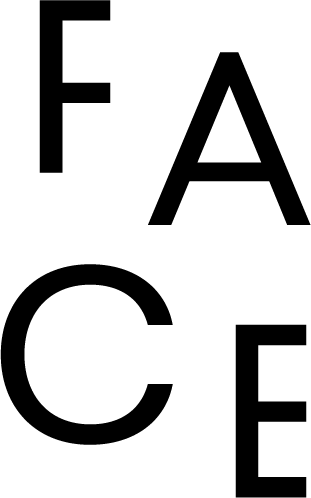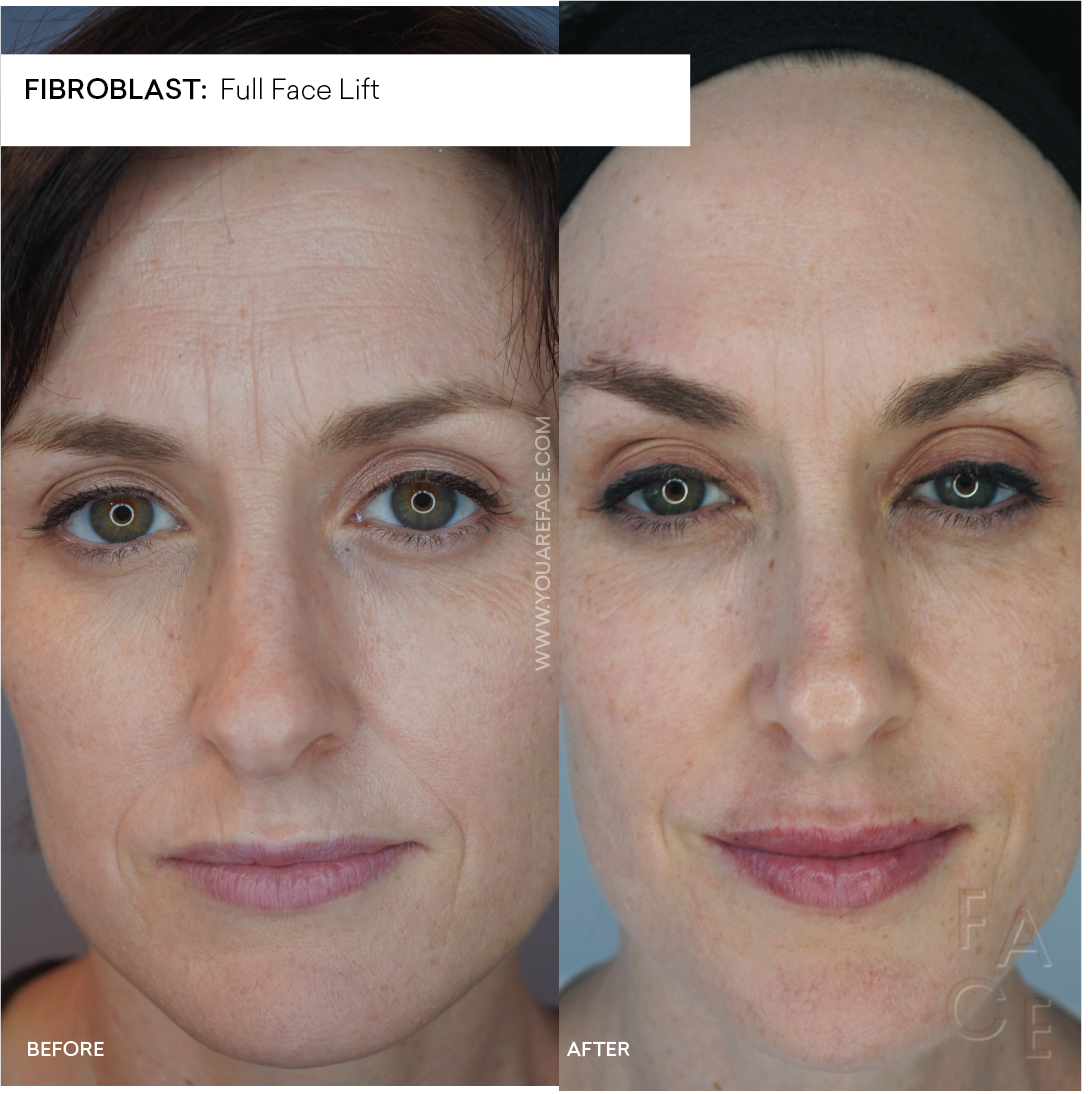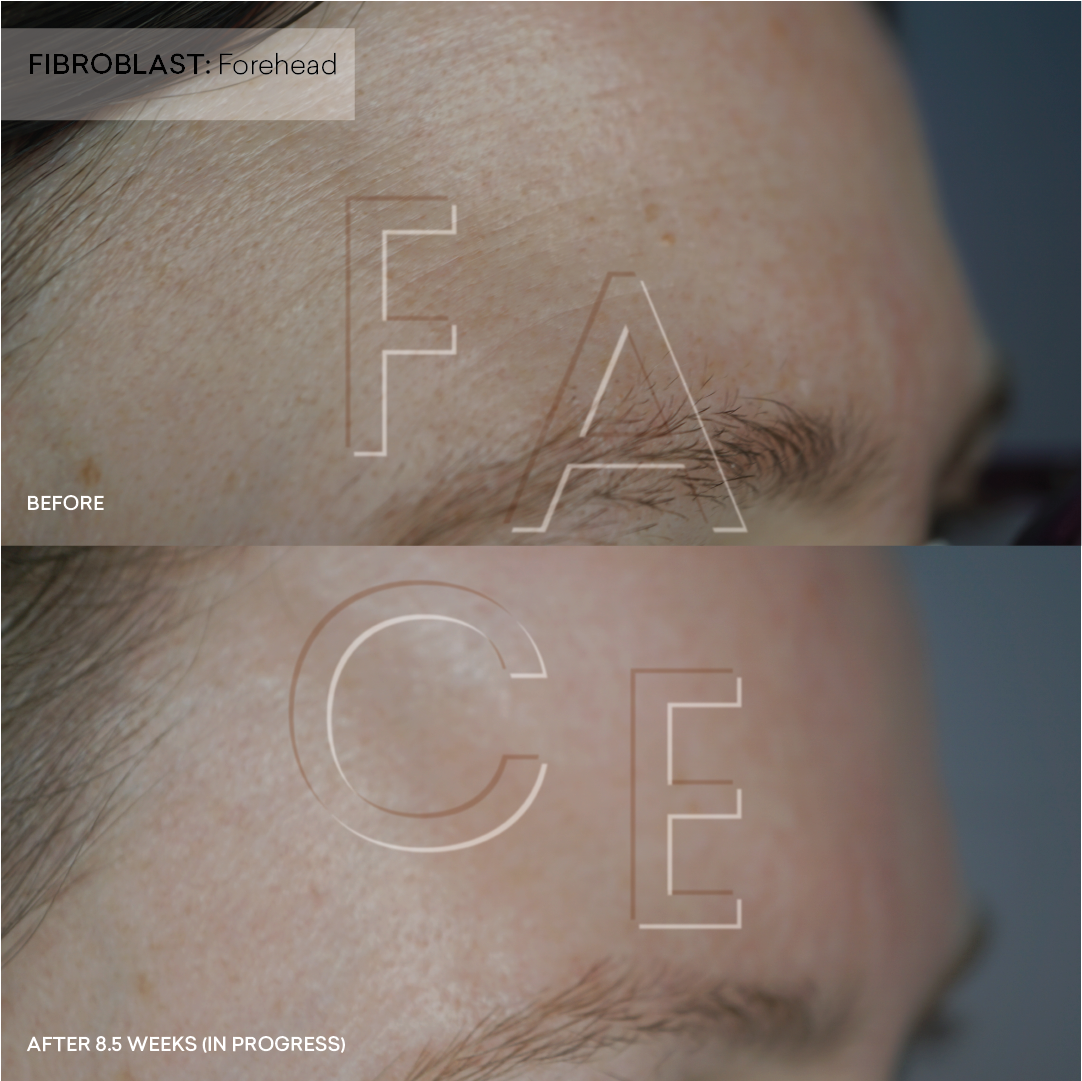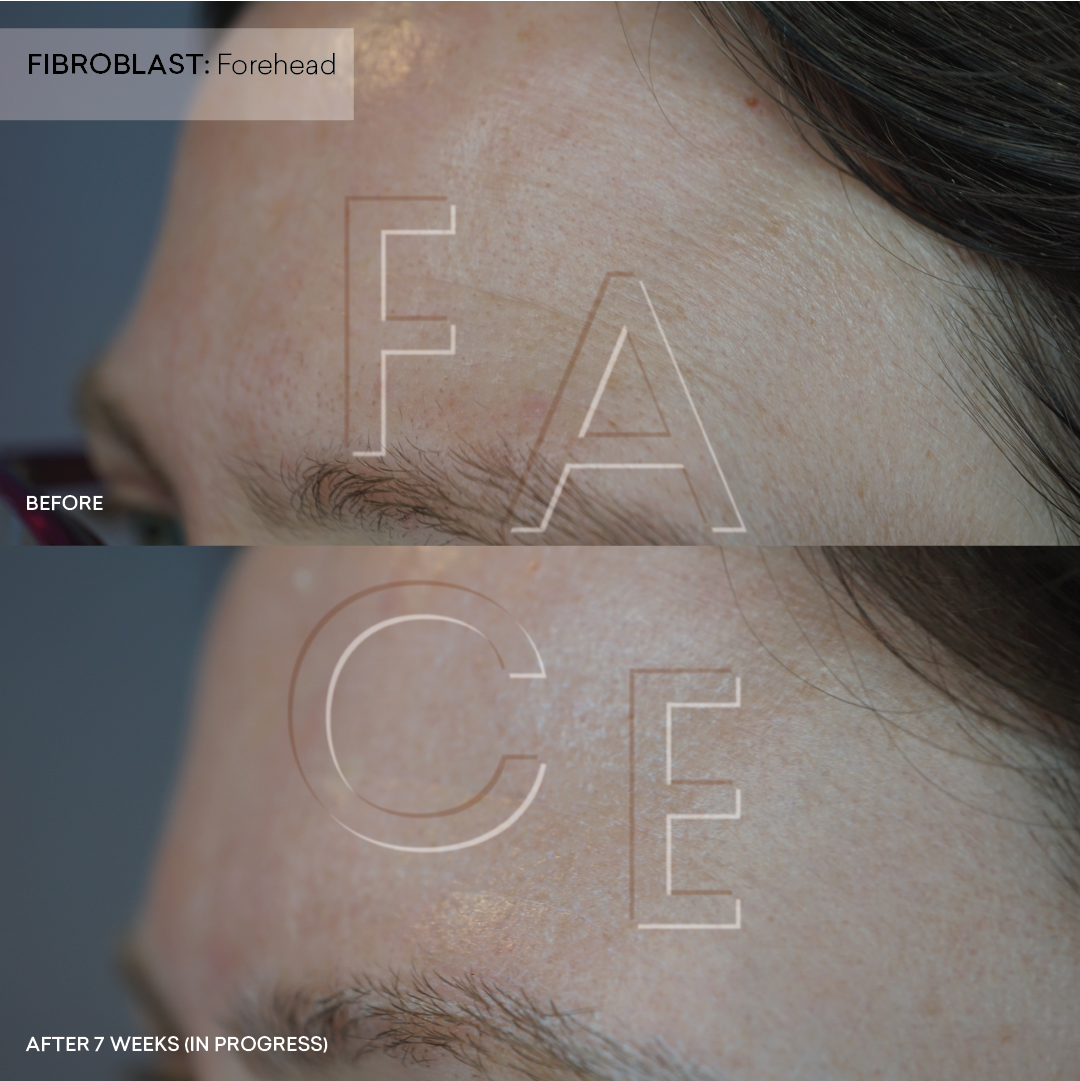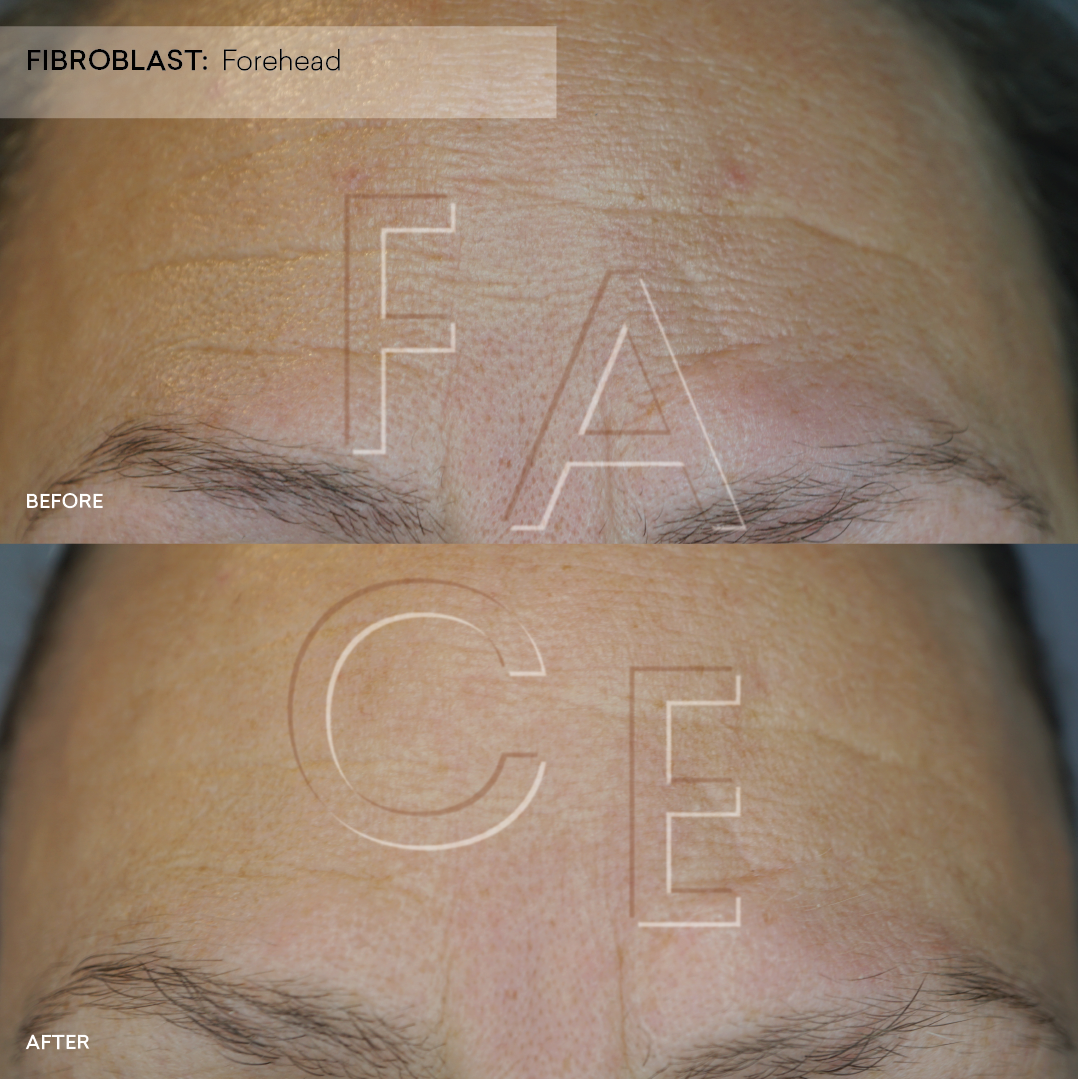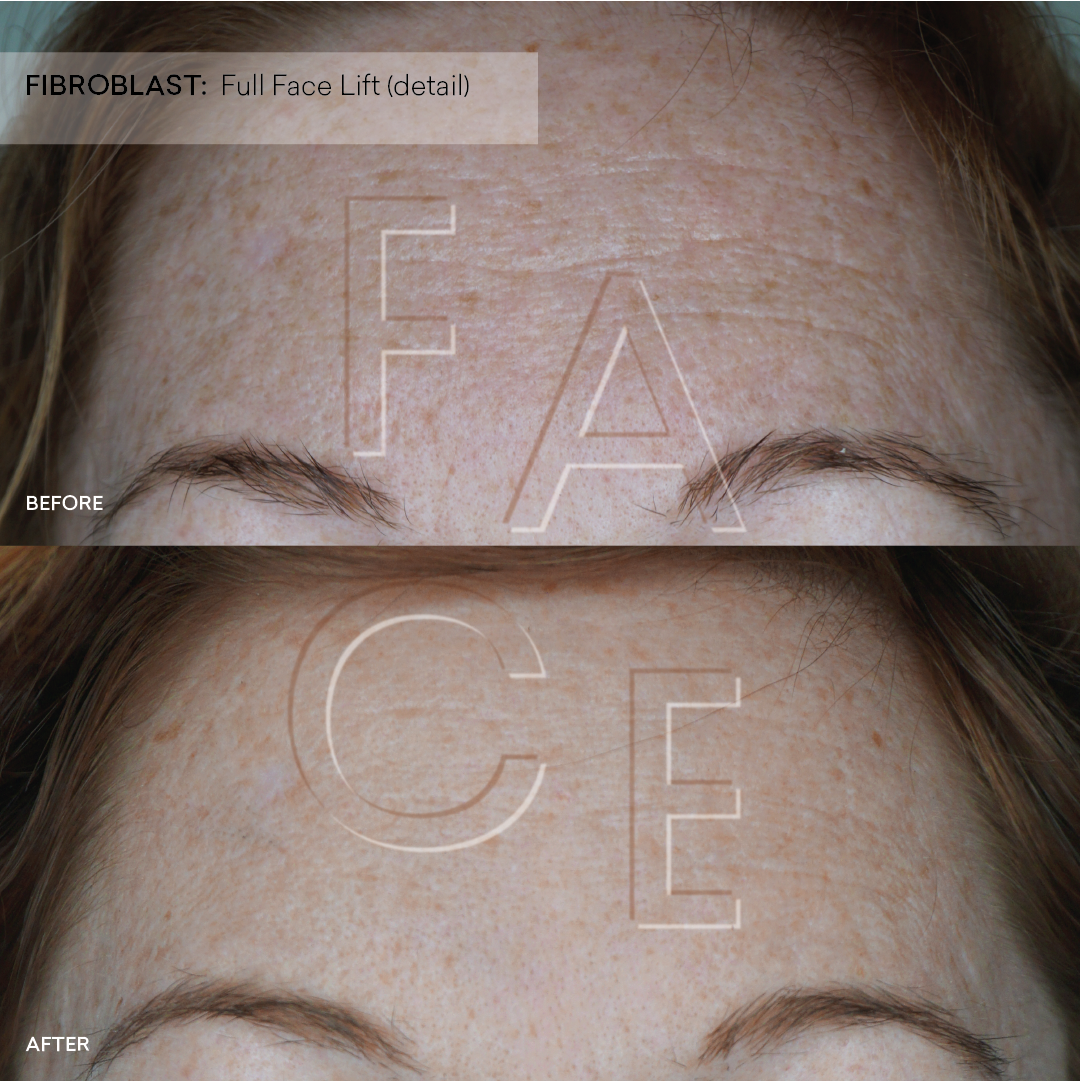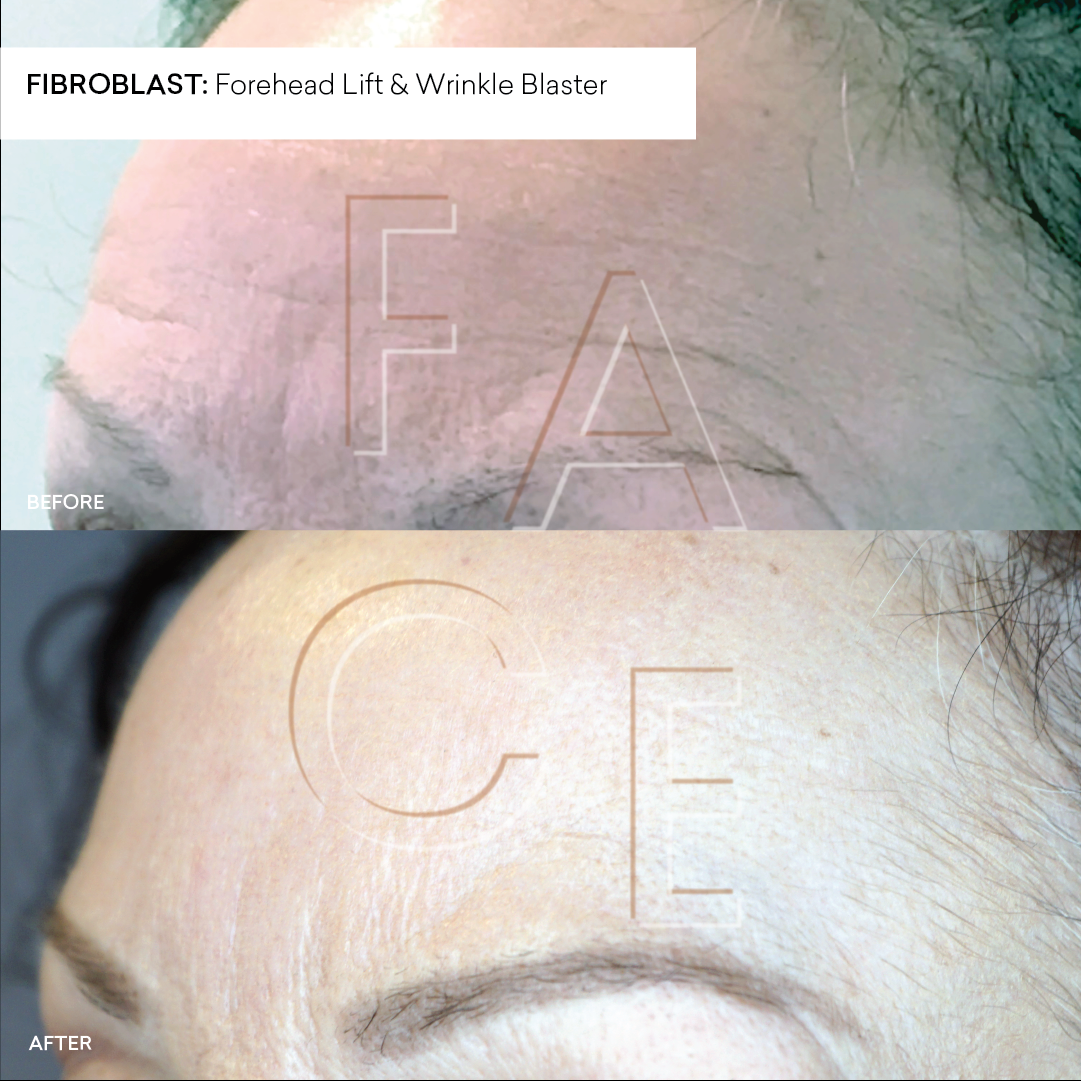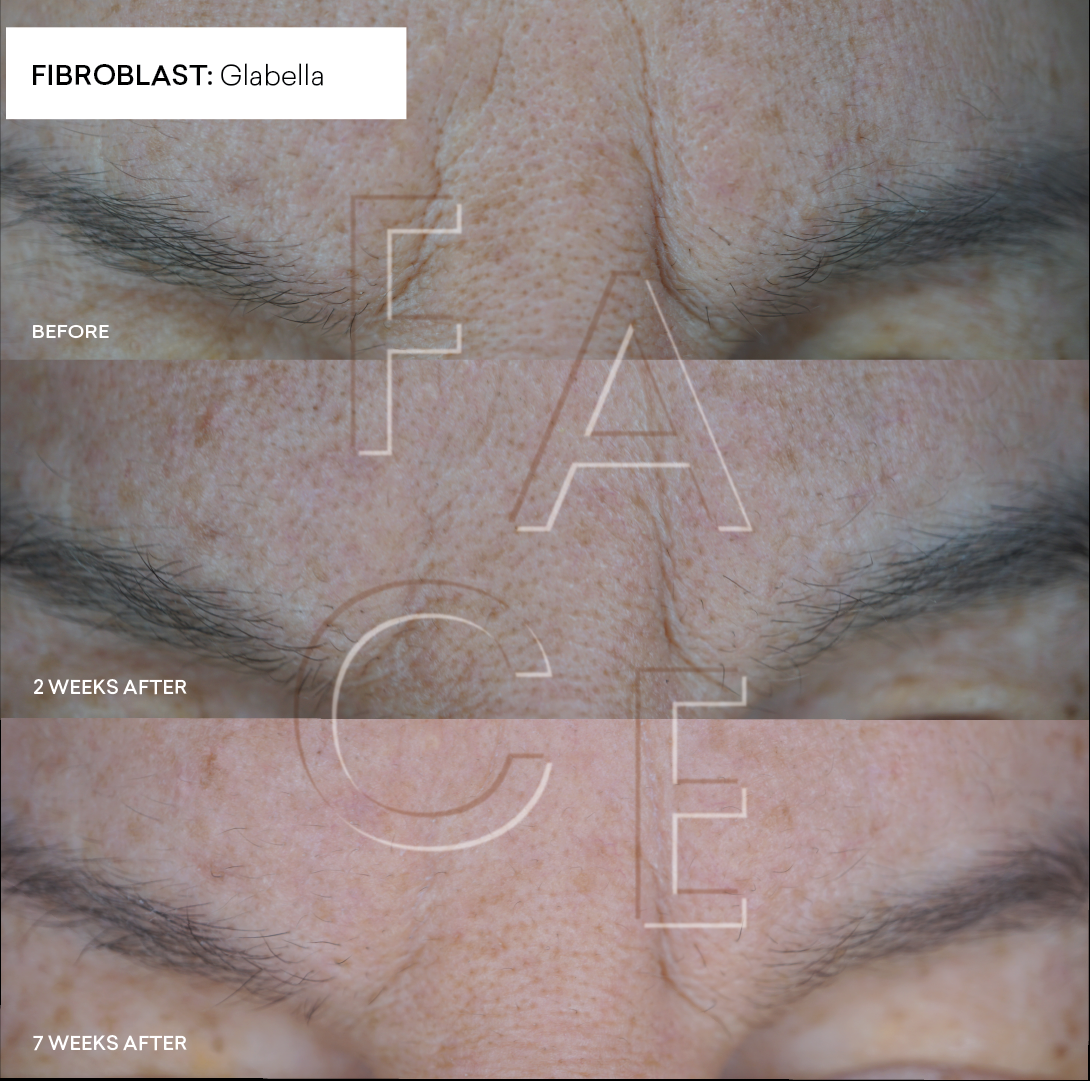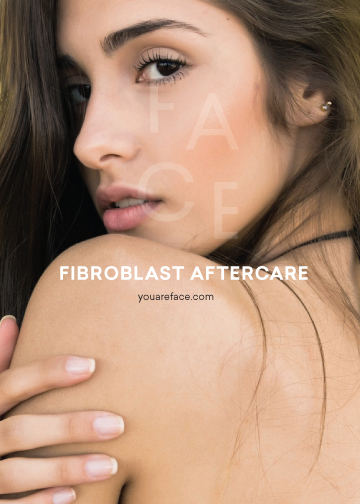What is Plasma Fibroblast Skin Tightening?
Plasma Fibroblast is a non-invasive skin tightening, well-aging treatment for your body. A technician uses a precision device to discharge a high-frequency plasma current to small areas of the skin on the face and neck. Skin fibers contract and tighten, creating a lifting, remodeling, and rejuvenating effect.
Plasma Fibroblast Essentials
Tightens, lifts, and firms skin by stimulating collagen and elastin.
Best for eyelids, neck, jawline, mouth lines, and stretch marks.
Results appear gradually over 8-12 weeks and can last up to 3 years.
Non-surgical alternative to skin tightening procedures.
Minimally invasive with a short recovery period.
At FACE, fibroblast costs $600 per area to start.
Plasma Fibroblast Basics
At FACE, we use the Korean-manufactured Plaxpot Plasma Pen. It is the only medical-grade pen in the world that has a 100% guaranteed plasma arc and is approved in the US by the FDA. It creates plasma using its internal plasma generator and is less likely to burn skin than other pens. The more uniform treatment application minimizes the risk of hyperpigmentation.
You will likely see some tightening and lifting immediately after the treatment. New collagen production starts at week four and you will see the most effects during weeks six to eight.
Following your treatment, you can resume most activities immediately. Expect swelling for up to five days and carbon crust dots on your face for around four - ten days (average of five - seven days).
It takes at least 12 weeks to see final results and may continue to see improvements to the area for up to six months. Further treatments can achieve better results. Areas may be retreated every three months. In some cases, skin may turn slightly pink or become textured for several weeks but will continue to fade.
Fibroblast Care Products
Plasma Fibroblast Skin Tightening Costs
Each treatment begins with a consultation to discuss your desired outcomes, followed by a 60-minute numbing session.
Plasma Fibroblast Before & After Results
At FACE, you can be assured that you are trusting your face and body with the best and most experienced fibroblast technician in Northern California. Desiree has a lot of experience doing fibroblast treatments on clients, has a plenitude of firsthand experience getting fibroblast herself, and uses the best pen available. (The Plaxpot Plasma Pen is the only pen in the world that has a 100% guaranteed plasma arc.) Plasma Fibroblast delivers exceptional results on the body as well. See the dramatic plasma fibroblast before and after results for yourself here.
FIBROBLAST ABOUT
FIBROBLAST COSTS
FIBROBLAST BEFORE & AFTER
FIBROBLAST CANDIDACY, PREP & AFTERCARE
FIBROBLAST FAQ
FIBROBLAST HEALING STAGES
Candidacy, Prep & Plasma Fibroblast Aftercare
Plasma Fibroblast Candidacy
Fibroblast (Plasma Skin Tightening) is not suitable for everyone. If you are considering Plasma Skin Tightening, you should be in good health at the time of the appointment, with no pre-existing health conditions. Ideal candidates for this cosmetic procedure are those with fair to medium skin tones with lax, crepe-like skin around the eyes, neck, tummy, mouth, or targeted area for the treatment. Fibroblast will not effect fat cells. A good candidate must not be prone to keloid scars, have diabetes, a healing disorder, lymphatic draining issues, history of hyperpigmentation, wear a pacemaker, be pregnant or be breastfeeding.
This treatment is only recommended on light-medium dark skin tones (FitzPatrick Scale 1-3 and sometimes 4/5). If you are a number 3/4/5, you may be more prone to hyper-pigmentation, which isn’t necessarily permanent. People with number 3, 4 and 5 complexions are recommended to get a patch test in desired treatment area(s) to see how your skin responds. Anyone with a darker complexion (6) is at risk for hyperpigmentation. Regardless of your FitzPatrick Skin Type or if you are not sure if you are prone to hyperpigmentation, a patch test is recommended for everyone as hyperpigmentation and/or texture can be a risk for everyone.
**If you are displaying signs of a cold, the flu, or cold sores/fever blisters/herpes, please reschedule.**
Plasma Pen Treatment Preparation
Contact lenses must be removed when performing treatment on the upper eyelids. The skin should not be inflamed in the area we are treating prior to your procedure. If you have a sunburn/suntan, the treatment should be postponed for up to 8 weeks or until tan/burn signs disappear. Eyelash extensions receiving upper or lower eyelid treatment MUST have lashes removed prior to treatment, they can be reapplied after 8 weeks.
Refrain from using topical agents that may increase skin sensitivity 2 -3 days before treatment. These products include Retinoids, Exfoliants and/or exfoliating devices, Salicylic washes and toners, products containing AHA and BHA’s, and Hydroquinone.
Depending on laxity and desired results, you may want to have multiple treatments in the same area. Areas may be treated every 3 months to let the collagen heal and turn over.
Optional Product
In preparation for Plasma Fibroblast, consider collecting a few items to help your recovery and/or to maximize your treatment. FACE stocks several of the recommended items below for your convenience. Stocked items are linked and noted with an asterisk. You may purchase these items from FACE in advance for pick up at your time of appointment, have them shipped, or browse during your appointment window. FACE’s entire inventory of goods for fibroblast lives HERE.
Plasma Fibroblast Supplements for Healing:
Vitamin C*
L-lysine for collagen production
Collagen Supplements and a collagen-rich diet
Bromelain supplements to suppress the body’s natural inflammatory response
Plasma Fibroblast Accessories & Products for Face:
Mild, unscented, alcohol-free cleanser, like Native Nectar Botanicals Micellar Cleansing Water
Wide-brimmed hats and large sunglasses, and full-face visors with UV protection
100% silk pillowcase to reduce friction during sleep
100% silk face masks to avoid premature removal of dots
Plasma Fibroblast Accessories & Products for Body:
UV protection rash guard
UV arm covers
LED light therapy device (UV free). Remember to hover over the skin with this device before the dots fall. It is fine to directly touch the skin after all of the dots have fallen.
Plasma Fibroblast Discomfort Management (typically only needed for 2-3 days):
Ibuprofen
Aquaphor to protect dots if falling prematurely
Plasma Fibroblast Sunscreen for Face & Body (only used AFTER dots fall off):
Colorescience Brush-On Sunscreen SPF 50 for on-the-go SPF refresh
Colorescience Sunforgettable Total Protection Face Shield SPF 50
Plasma Fibroblast Facial Products (only used AFTER dots fall):
Wildbloom Skincare Resurfacing Night Cream or another gentle, non-physical enzymatic exfoliator. Remember, these products should only be used AFTER dots fall. Typically, this is only needed if you are putting makeup on the skin and want a smooth texture. Peeling normally lasts 1-3 days after dots fall.
Products with Peptides, like the Colorescience Pep Up Collagen Renewal Treatment
Moisturizers, Serums, & Creams, like the Zaq Hydrating Collagen Boosting Serum
Makeup products to cover temporary redness:
Green tint corrector, like the Colorescience All Calm Clinical Redness Corrector
Plasma Fibroblast delivers exceptional results on the body as well. See the amazing before & after results for yourself here.
Plasma Pen Treatment FAQs
What kind of Fibroblast pen tool do you use?
At FACE, we use the Korean Plaxpot Plasma Fibroblast Pen, the only medical-grade plasma pen approved in the USA by the FDA. The Plaxpot Pen creates plasma using its internal plasma generator to minimize or eliminate unwanted side effects. Face is one of the very few places in the US that uses this pen. Do not risk scarring with lesser, dangerous pens. Be safe with the Plaxpot at FACE.
What are the side effects and risks of fibroblast?
Fibroblast has been shown to be a safe treatment due to its non-invasive nature when done by a fully certified technician. You may resume most activities immediately after any treatment but you may not look your best during the healing process (usually 5 to 10 days). Please plan to have swelling for up to 5 days and carbon crust dots on your face for around 4 - 10 days (average of 5-7 days).
You are very likely to see tightening and lifting immediately at the time of the treatment, especially if you have a lot of crepe-like skin. New collagen production starts at week 4 and weeks 6-8 tend to produce the most tightening.
It takes a minimum of 12 weeks to see final results though you may still get improvements to the area for up to 6 months. In some cases, the skin may be faintly pink or faintly textured for several weeks but will continue to slowly fade daily. Read more about post-care and the healing process HERE.
What are the benefits of plasma fibroblast?
Tightens and lifts skin anywhere on the face, neck, body
Produces effects similar to invasive surgery in upper lid lifts, facelifts, and more
Targets wrinkles and fine lines, such as crows feet, marionette lines, frown lines, forehead lines, lip lines, and more
Tightens crepe-like skin on the face and neck
Conceals acne scars
How many treatments are required?
The number of treatments required will vary according to the area being treated, the skin's laxity, the desired degree of correction, and the individual’s response to the treatment. Most clients see results instantly and this continues to improve over the course of the following 8 -12 weeks. Further treatments can be carried out to achieve better results. Areas may be retreated every 3 months.
What add-on treatments are available for fibroblast at FACE?
The additional treatments include a 30-minute course of red LED light therapy ($60) and/or powerful stem cell medicine ($100). Clients have the option to add one or both add-ons immediately after their treatment. Both are recommended to quicken healing time and to optimize results but are not necessary.
In the case of the powerful stem cell medicine, 0.17 fluid ounces of pure stem cell serum is rubbed into the tiny open micro wounds immediately after the treatment in the short window of time before the carbon crusts begin to form. The stem cells then communicate directly with the wounded cells giving them robust information on how to best heal using the quickest route.
Clients can add a 30-minute course of red LED light therapy ($60) immediately after their treatment. I recommended it to quicken healing time and optimize results.
The 30-minute red LED light therapy (640 nm, 1 - 6 mm penetration depth) treatment provides extra support for your body to produce collagen, support product penetration, heal, and repair tissue repair. The light therapy produces a biochemical effect in cells that strengthens the mitochondria. The mitochondria are the powerhouse of the cell — the source of the cell’s energy creation. Adenosine triphosphate (ATP) is the energy-carrying molecule of all living things. By increasing the function of the mitochondria using red light therapy, a cell can make more ATP. With more energy, cells can function more efficiently, rejuvenate themselves, and repair damage.
FACE also sells LED light therapy machines for continued home use.
How do I prepare for a fibroblast treatment?
It is recommended to discontinue the use of any Glycolic Acids, AHA, and/or Retinol skincare products for 4 weeks prior to treatment. Come with a clean face if possible. Let me know about any recent medical conditions and medications taken. Mention any surgeries or aesthetic procedures performed currently on your skin. Read more pre-care HERE.
Does fibroblast hurt?
Fibroblast is a non-surgical treatment with moderate discomfort or pain reported by clients. The sensation varies from person to person and treatment area to area. A topical cream is applied to numb the treated area prior to the procedure. Some have reported that the discomfort is similar to that of an IPL treatment or tattoo during the treatment and similar to a sunburn after treatment. Immediately after the treatment, the skin will be reddened and slightly swollen. Swelling will usually last up to 4 days. Slight redness and tenderness may remain for several weeks. During the procedure, carbon crusts will form on the skin directly where the Fibroblast tool was applied. Crusts should not be touched.
Can I use cosmetics while healing from fibroblast?
For at least 5-7 days afterward, the treated skin area will be covered with carbon crusts. They should not be rubbed off therefore it is necessary to avoid any moisturizing creams or cosmetics in this period. After crusts fall off on their own, you may use both cosmetics and healing sunscreens.
Can fibroblast eliminate the need for Botox?
Yes, absolutely! Static wrinkles and lines can be eliminated. Dynamic wrinkles can be lessened dramatically. Additionally, as the treatment happens, the change in the skin is visible right away so treatment areas can easily be evened out. People of color (including people of the African Diaspora) can be good candidates for fibroblast. The plasma pen being used and the skill of your practitioner matter. Plaxpot is the only plasma pen that I have found to work consistently well on PoC. It is, however, essential that PoC first do a patch test.
Who is a good candidate for fibroblast?
Ideal candidates for this cosmetic procedure are those with lax, crepe-like skin around the targeted area. This treatment is only recommended on light-medium skin tones (FitzPatrick Scale 1-3 or 4). Persons who are a FitzPatrick 4 are advised to do a patch test in the area first and then wait the full healing period of 3 months. Anyone with a darker complexion is at risk for hyperpigmentation.
If you are prone to keloid scars, have diabetes, a healing disorder or lymphatic draining issues, history of hyperpigmentation, wear a pacemaker, are pregnant, or are breastfeeding, then it is not right for you. Fibroblast cannot be performed on skin areas with rosacea or other skin inflammation. Read pre-care instructions HERE.
What areas of the face does fibroblast treat?
Upper face & eyes: forehead, upper & lower eyelids, lower eye lines, crows feet, brow lifts, glabella/frown lines/elevens, before ear lines, nose
Mouth: upper lips, marionette lines, nasolabial folds, smoker lines
Lower face & neck: jaw, jowls, cheeks, neck
Body: tummy, arms/bingo wings/bat wings, stretch marks, knees, hands, breasts
How long do fibroblast effects last?
As fibroblast actually reduces skin volume, effects should last as long as with invasive surgery. Like all surgical and cosmetic procedures, effects are not entirely permanent as they cannot prevent further aging, but positive results should last years, depending on the area treated. You will notice positive effects immediately after the first treatment but will see final results after 8 weeks. For some, an additional treatment may be required after 3 months for maximum results. Lifestyle factors can shorten the effects, such as smoking, alcohol consumption, and prolonged sun exposure.
How long is a fibroblast procedure?
Numbing cream will first be applied to the treatment area, and it will take 45 minutes for the anesthetic to take effect. After numbing, most procedures take between 40 minutes and 3.5 hours, depending on the area and the size of the treated area. Most appointments average 1 1/2 hours. Check HERE for an outline of each area and procedure time.
What is the aftercare regimen for fibroblast?
It is very important to carefully follow after-care recommendations. Carbon crusts CANNOT be scratched or removed. Drying skin by dabbing with a clean, lint-free cloth is allowed. Healing skin should be protected from direct sun with protective accessories, clothing, and SPF 50 cream for 3 months after treatment. Sports, swimming, and sauna are not permitted until crusts fall off (4-10 days, average 5-7). In addition, clients must avoid all direct heat sources such as sun, UV radiation, saunas, etc. for a period of at least 4 weeks. Read more about post-care and the healing process HERE.
Why do a patch test and how long should I wait afterward?
Patch Test on FitzPatrick 4/5 Skin. Testing for Upper and Lower Lip.
Patch tests are a great tool to understand how your skin will react to fibroblast. Patch tests are always done in each desired treatment area as each area will react differently to fibroblast. Patch tests are usually 5-10 dots in each area. The individual dots are .3 mm, smaller than a very small freckle. The patch test results can take anywhere from 1 week to 3 months to determine. We are really looking to see if you get hyperpigmentation and, if so, for how long. You may have your dots fall off after 1 week and discover that your skin underneath is not red at all or you may discover that it is red for 3 weeks after. The variable of the resulting redness after the dots fall is what we will be tracking. You can use that data as a template for what to expect if you do the full treatment.
Plasma Fibroblast Day-by-Day Healing
It takes at least 12 weeks to see final results and complete the healing cycle. Changes are likely to be subtle from day to day and more dramatic as they cumulate over time. Improvements may continue for up to 6 months. The healing cycle unfolds in two stages over 3 months.
Fibroblast Healing Stage 1: Dots
Stage 1 of fibroblast healing is when scab dots are on the treatment area. Face dots shed approximately 4-14 days following treatment (the average client begins to shed dots on day 7). Dots on the body often take longer than the face, potentially around 2-3 weeks.
No Sun! Avoid all sun exposure by keeping a physical barrier between your treatment area and sunlight during Stage 1 of healing.
No Products, Liquid, or Steam! Keep the area clean and dry. If needed, clean the treated area using a mild, unscented, alcohol-free cleanser. PAT DRY- KEEP DRY! Do not apply sunscreen or makeup (even mineral makeup) until the scabbing has fallen off completely. This is to avoid infection or disrupting the scabs prematurely. Avoid exercising immediately after a treatment, as any heat, steam, or sweat can add to inflammation and disturb dots. Do not use any pools, hot tubs, or saunas until after the dots have fallen.
No Picking or Friction on Scabs! Prematurely removing scabs may result in scarring and discoloration. Allow scabs to come off on their own. This will ensure the best possible result and avoid scarring, hyperpigmentation, and infection. The longer the scabs stay put, the longer the skin has a chance to heal itself with the protection of the scab. Use a 100% silk pillowcase and silk eye mask for sleep to avoid scab friction.
You may resume most activities immediately after any treatment, but you may not look your best during healing stage 1 while the dots are present in the treatment area. Depending on treatment location and comfort level, you may choose to avoid in-person appointments during this time.
If needed, use ice, bromelain, anti-inflammatory herbs, and/or oral antihistamines to help with swelling and/or itching.
Avoid shaving over any treated area until the skin has fully healed.
Avoid smoking.
Fibroblast Healing Stage 2: Dots no more!
Stage two begins when the last dot has fallen and continues until 3 months from the date of treatment has passed. You may apply makeup at this stage and slowly return to your normal skin routines.
Always apply broad-spectrum SPF 50 to the treatment area until at least 3 months after your date of treatment. Healing skin can become damaged by UV rays, causing hyperpigmentation and/or premature aging.
Update SPF 50 every 80 minutes.
Avoid harsh products (like acids, peels, or physical exfoliants) until the 8-week post-treatment healing point. Use common sense—if it doesn’t feel good, then don’t do it. Patch test and re-introduce active ingredients slowly.
helpful hints:
The following are optional additional suggestions to maximize results and get optimal healing. I have found these methods to quicken the healing time significantly.
Do the Stem Cell + Growth Factors + Cytokines add-on at the time of treatment.
Do the 30-minute Red Light LED therapy add-on at the end of your treatment. Or, better still, purchase your own Red Light LED therapy machine and use it for 30 minutes daily during Stage 1 of your healing.
Take collagen, vitamin C, and L-lysine supplements to give your immune system and collagen production a boost.
Get ample sleep and rest.
Keep stress low.
Plasma Pen Healing Process Day by Day
Day 1: Try to lay propped up with pillows. Some discomfort is normal. Swelling (if present) will likely be worse in the mornings and lessen towards the evening. It will feel like a bad sunburn.
Day 2: Swelling typically peaks today. It will still feel like a sunburn. This too shall pass.
Day 3: You may notice an improvement in the swelling and the “dots” will start to crust/scab over. Allow scabs to fall off on their own. Discomfort will have subsided a bit.
Day 4: Discomfort should continue to diminish.
Day 5: Scabs may still be present.
Days 6 - 14: Wait patiently for the remaining scabs to fall off on their own. It is normal for the new skin under the scabs to be pink or red.
Weeks 2 - 8: After scabs fall off, you may have tender, peeling, or textured skin for a few days or weeks. Once tenderness subsides, use a non-physical, gentle, enzyme exfoliant to slough off peeling skin. After scabs fall off, you may also use healing serums, lotions, and makeup. Each day, your skin will progressively return to its’ original coloration and texture.
Depending on laxity and desired results, you may have multiple treatments in the same area. Areas may be treated every 3 months to let the collagen heal and turn over.
Progress through the first 7.5 weeks. These are NOT the final results which are reached 3 months after the initial treatment.
Progress through the first 3.5 weeks. Snapshots of the gradual changes after plasma fibroblast treatment. These are NOT the final results which are reached 3 months after the initial treatment.
Plasma Fibroblast delivers exceptional results on the body as well. See for yourself here.
